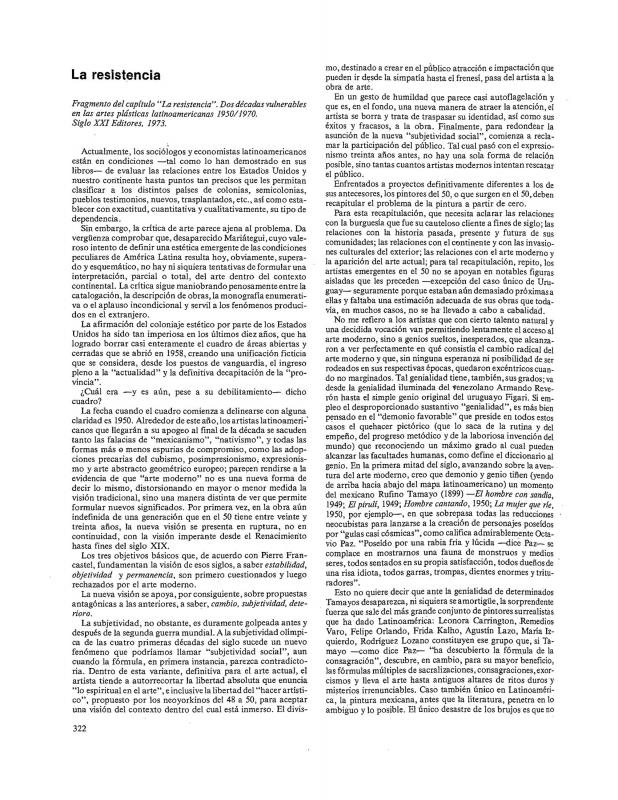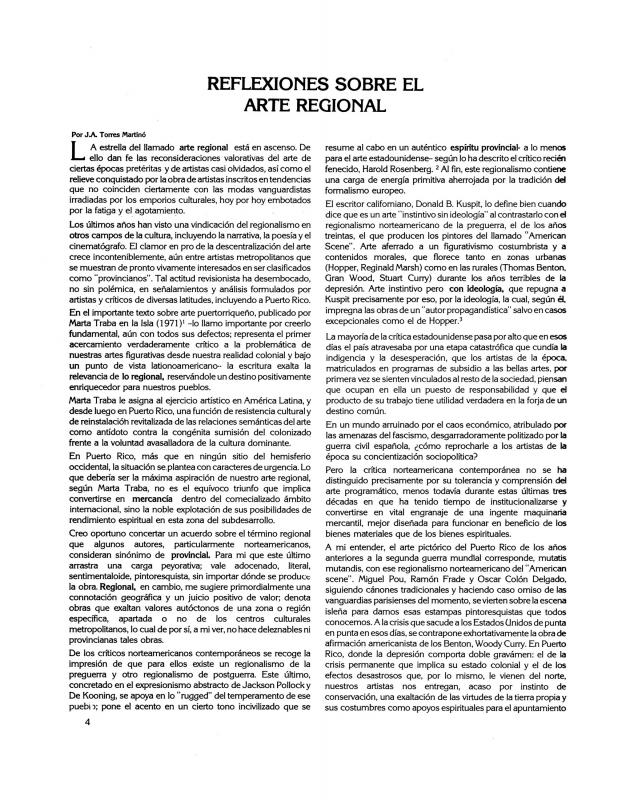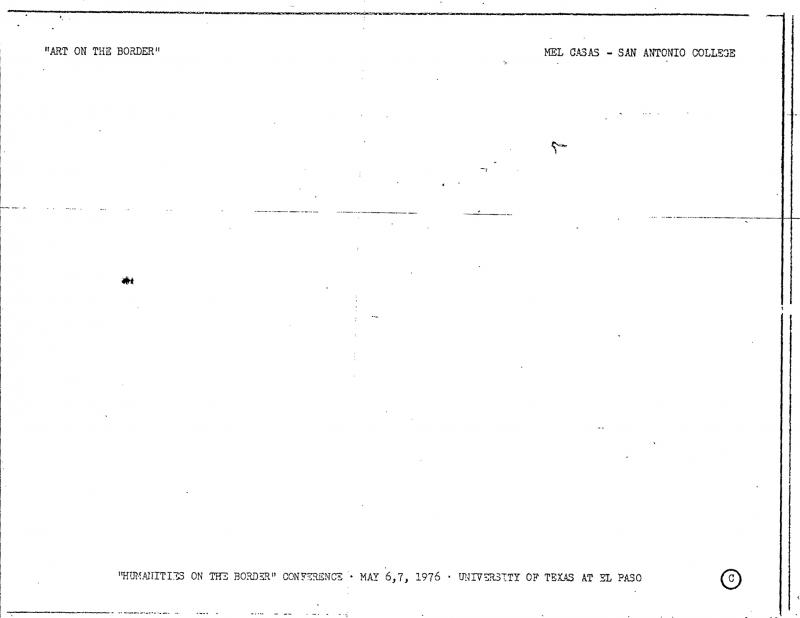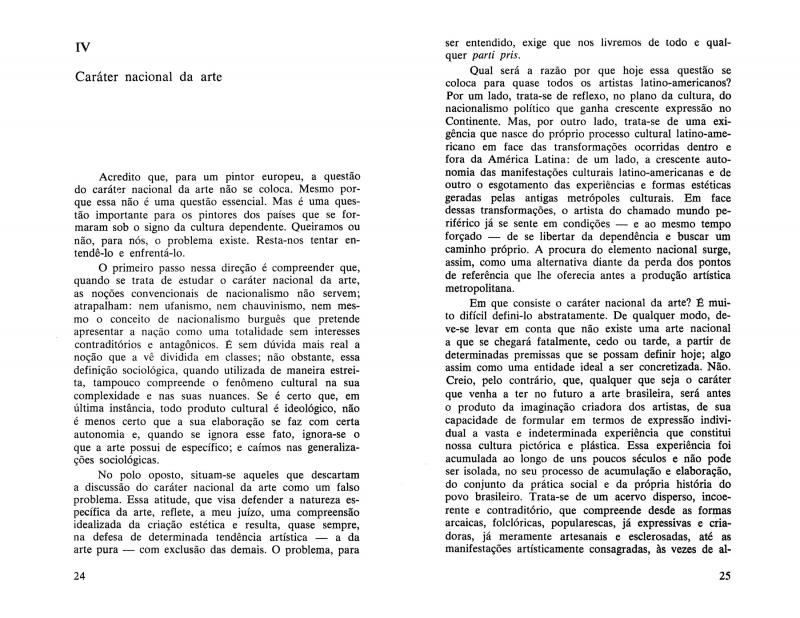The São-Paulo-based art historian Aracy Amaral (born 1930) originally presented “Indagações, extensão e limites do regionalismo” at a conference in Porto Alegre, Brasil [Encontro Nacional de Artistas Plásticos e Profissionais (ENAPP), organized by MAC-USP/Funarte/INAP/SEC/RS, November 7−11, 1983]. Her text reflects a long-standing conundrum of Latin American intellectuals, caught in between the political, economic, and cultural hegemony of the developed Western nations and the struggles for emancipation in their region. Like many other thinkers of the time [See, for example: Marta Traba, “La resistencia,” document # 1126517; José Antonio Torres Martinó, “Reflexiones sobre el arte regional,” document # 822527; and Mel Casas, “Art on the Border,” document # 1125446], Amaral believes that the excessive adherence to the cosmopolitan models prevents artists from engaging with socio-political reality of their countries. Hence, similarly to her contemporary Brazilian critic Ferreira Gullar (born 1930), she seeks to stake out a balanced position that would permit artists to keep up with the international cultural development without sacrificing commitment to the problems of their homelands [See Gullar, “Caráter nacional da arte,” document # 807930]. Yet such a balance is, in fact, hard to achieve, as the case of Cuba demonstrates. Amaral’s idealized view on Cuban culture after the revolution was demystified, for example, by the literary critic Roberto Fernández Retamar in “Caliban: Apuntes sobre la cultura de nuestra América” of 1971 [document # 1056617].




